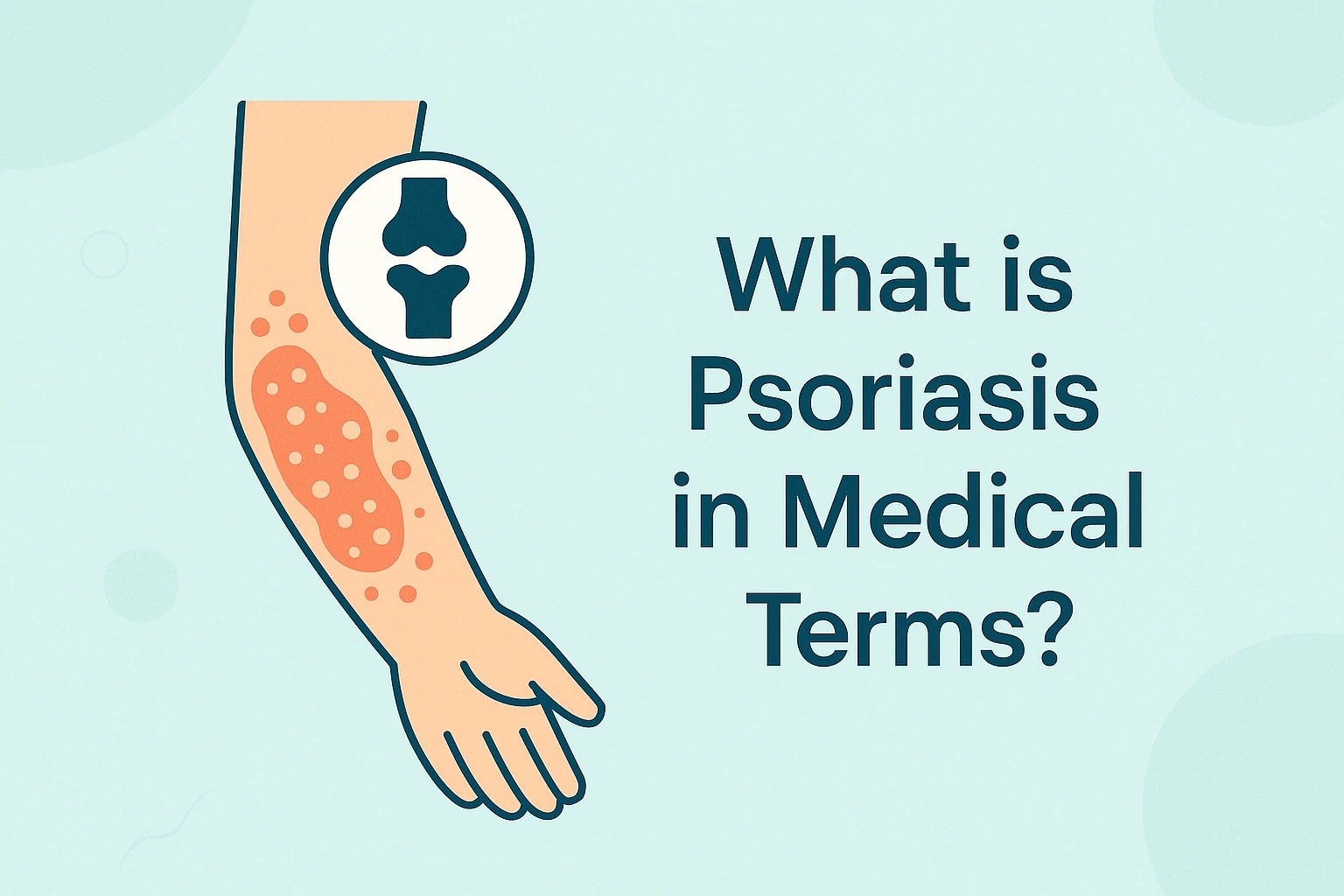Psoriasis is a chronic autoimmune condition that causes the rapid buildup of skin cells, resulting in the formation of thick, scaly patches on the skin. These patches, which are often red, inflamed, and covered with silvery scales, most commonly appear on the elbows, knees, scalp, and lower back, but they can develop anywhere on the body. Psoriasis is a non-contagious condition, meaning it cannot be spread from person to person.
The condition is characterized by an overactive immune system that triggers inflammation and rapid skin cell turnover. Under normal circumstances, skin cells are replaced every 28–30 days, but in individuals with psoriasis, the process is accelerated, and new cells are produced in a matter of days.
If you experience persistent or worsening skin symptoms, or if your psoriasis is affecting your quality of life, it’s important to consult a healthcare provider. Early treatment can help manage the condition and reduce the risk of complications, including psoriatic arthritis.

Types of Psoriasis
There are several types of psoriasis, each with its own set of characteristics:
- Plaque Psoriasis: The most common form, characterized by raised, red patches covered with silvery scales. These patches can be itchy or painful and can vary in size.
- Guttate Psoriasis: Small, drop-shaped, red lesions that often appear after a strep throat infection. This type is more common in children and young adults.
- Inverse Psoriasis: Occurs in areas with skin folds, such as the armpits, groin, or under the breasts. The patches are smooth, red, and shiny, often without the scales seen in other forms of psoriasis.
- Pustular Psoriasis: Characterized by white pustules (blisters of noninfectious pus) surrounded by red skin. It can occur on localized areas or cover large areas of the body.
- Erythrodermic Psoriasis: A rare and severe form that causes widespread redness and shedding of the skin in large sheets. It can lead to serious complications and requires immediate medical attention.
- Nail Psoriasis: Affects the fingernails and toenails, causing pitting, discoloration, thickening, and sometimes separation of the nail from the nail bed.
Symptoms of Psoriasis
The symptoms of psoriasis can vary depending on the type and severity, but common signs include:
- Red, inflamed patches of skin covered with silvery-white scales (plaques).
- Itching, burning, or pain in the affected areas.
- Dry, cracked skin that may bleed.
- Thickened or ridged nails (in nail psoriasis).
- Swollen joints and psoriatic arthritis, which affects some individuals with psoriasis, causing pain, stiffness, and swelling in the joints.
Causes and Risk Factors of Psoriasis
While the exact cause of psoriasis is unknown, it is believed to be the result of a combination of genetic and environmental factors. The primary contributors include:
- Genetics: Psoriasis tends to run in families, suggesting a genetic predisposition to the condition.
- Immune system dysfunction: In psoriasis, the immune system mistakenly attacks healthy skin cells, leading to rapid turnover and inflammation.
- Environmental triggers: Certain factors can trigger or worsen psoriasis, including stress, skin injury, infections (such as strep throat or upper respiratory infections), and cold weather.
- Medications: Certain drugs, including lithium, antimalarials, and beta-blockers, can trigger or exacerbate psoriasis symptoms.
- Lifestyle factors: Smoking, heavy alcohol consumption, and obesity can increase the severity of psoriasis or trigger flare-ups.
When to See a Doctor for Psoriasis?
Seek medical advice for possible psoriasis if: you have severe symptoms like widespread skin lesions or joint pain. Emergency signs include fainting, chest pain, or confusion, which need immediate attention.
Related Terms of Psoriasis
FAQs for Psoriasis
When should I go to the ER for psoriasis?
If you experience severe symptoms like difficulty breathing or chest pain, seek emergency care immediately.
How can heat affect psoriasis in the UAE?
Extreme heat and dehydration can exacerbate psoriasis symptoms; staying hydrated is essential.
What are some ways to reduce the risk of psoriasis flare-ups?
Maintaining a healthy lifestyle, managing stress, and avoiding known triggers can help reduce the risk.
